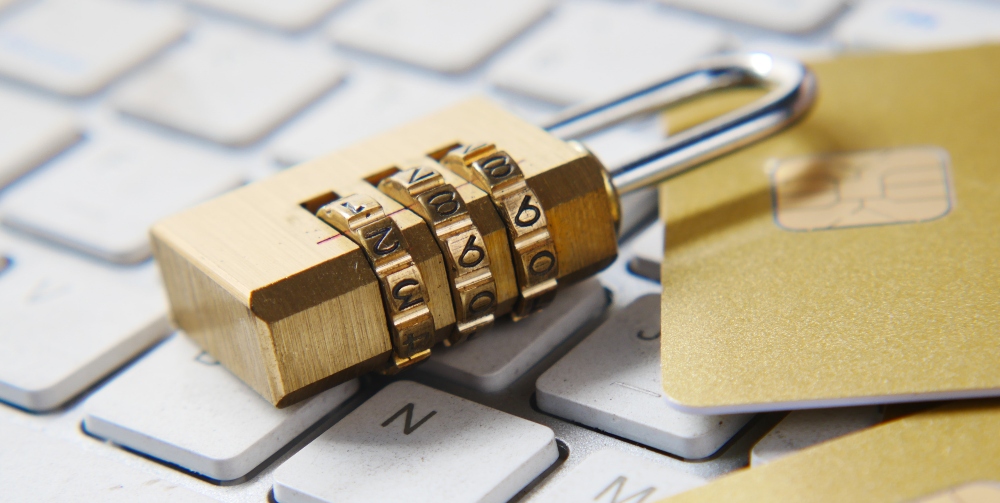8 Event Security Measures to Put in Place at Virtual Events

Security for events is an important consideration when planning and executing virtual and hybrid events, that goes without saying.
You see, just because your event takes place virtually, does not mean that it is completely risk-free. Think about it. The fact that your virtual events handle a lot more sensitive data makes them prone to hackers and other threats.
Do keep in mind that hybrid events are still just as open to the same security measures facing in-person events, too. Physical security and event surveillance might be needed, depending on the type of event you’re running (such as a hybrid trade show).
Below, you’ll notice that we’ve split this post into two separate sections:
- Physical Security at Virtual and Hybrid Events
- Digital Security at Virtual and Hybrid Events
We’ve done this to help outline exactly what security measures you need to implement, covering both virtual and hybrid events. Think of this post as a checklist of sorts – one that you can keep coming back to again and again, if required.
Let’s jump in, shall we?
What Security Measures are Needed for a Virtual or Hybrid Event?
We understand that not all of the information presented here will be for everyone. For example, if you’re running a virtual event that takes place only through the internet, then the hiring of security personnel doesn’t really apply to you?
Still, it’s all worthwhile knowledge, if you should ever decide to take the hybrid event route. If you’d like to learn more about hybrid events do check out our complete guide right here.
There are many security measures that need to be put in place to ensure that your events run as smoothly as possible. Let’s begin with physical security before looking at what digital security measures need to be taken.
Physical Security at Virtual and Hybrid Events
Hybrid events pose the largest challenge out of all other event types from a security perspective. There is digital security to consider, not to mention, the need for physical security.
Again, how much security you need will depend entirely on the type of hybrid event you’re running. Some of the security measures we’re about to cover might not apply to you, such as the hiring of security personnel.
With that in mind, feel free to skip certain sections and jump into only those that are relevant to you; we won’t mind.
In-Person Security Personnel
Most hybrid events will require in-person security personnel to provide support on the front lines as the event is taking place. Theft, altercations, and responding to emergencies, your security personnel should be equipped to deal with it all.
The importance of these individuals could be paramount, as it’s your security team that is tasked with mitigating issues, and relaying important information to attendees should an emergency occur.
They’re almost always first on the scene should any problems arise, making them an important part in the success of your hybrid events.
Event Surveillance Protocols
Video surveillance works in parallel with in-person security personnel to ensure that any issues are handled before they evolve into something bigger.
Having a birds-eye viewer monitoring your events will ensure that anything that isn’t picked up at ground level is already covered. After all, security teams can only see so much from the ground.
If your event runs for more than one day, having event surveillance will ensure that you’re covered should something happen overnight.
It helps that video surveillance can either be conducted either on-site or at an external location too, thus giving event organisers many options when it comes to this particular security measure.
Registration and Admissions
With hundreds, if not thousands of attendees looking to attend your event, steps need to be taken to make sure that everyone has a valid ticket and is well enough to enter. That last point we can’t stress enough what with Covid still being a nuisance.
Effective event security begins at the front desk.
This is something we know first hand having been an integral part of various hybrid events over the years. And while we don’t offer security services ourselves, we still recognise the importance of these protocols and how effective they are.
Here are some important details to consider for managing admissions:
- Have a plan for what to do with anyone attempting to enter the event without admission.
- Ensure that there is security personnel at every opening of the venue.
- Outline designated safety points throughout the venue in case of emergency.
- Establish and train the relevant staff on protocols for entry.
Digital Security at Virtual and Hybrid Events
From physical event security measures to digital security measures, let’s turn our attention to, what you could say, takes precedence over every other security consideration.
You’ll find that digital threats are usually a lot more direct than indirect. Here’s a quick rundown of the biggest risks:
- Payment processing issues
- Insufficient connections
- Hackers and data breaches
Data and identity security are very important, and need to be covered for you to run an event without worry. Procedures need to be put in place to provide the maximum amount of protection possible.
What’s more, the event security measures you put in place need to adhere to clear registration security standards.
Encrypted Privacy is Important
It’s impossible to run a virtual or hybrid event and not consider data security and privacy, and that applies to all kinds of events too – from virtual exhibitions through to hybrid meetings.
The fact that your event exists in a digital medium automatically puts you at risk.
“Because these events involve sensitive user data—like payment, account credentials, intellectual property and personal identification—they become more vulnerable, and it takes just one vulnerability for a hacker to exploit and wreak havoc.”
– Devin Clearly, VP of Global Events at Bizzabo
Not to worry though! There’s a lot you can do to ensure that private information and data is kept private. One step to take is to ensure that all important information is enforced via multi-factor verification.
Another step involves aligning yourself with a dedicated virtual event provider that does their part in keeping data and information secure, but we’ll get to that in just a second.
Registration Security Standards
For hybrid conferences or events, organisers might want to consider implementing some type of registration security. Doing so could help highlight red flags in the registration process; take hacking during the payment process, for example.
Other issues this digital event security measure could highlight is when an individual purchases a large number of tickets in hope of either selling them for a much higher price, or causing disruptions.
This is but one example of why someone might want to infiltrate your events and cause harm. Why these individuals do this is anyone’s guess. Maybe you are featuring a speaker with controversial views? Or, do they not have a reason and are simply doing it because they can?
Regardless, your digital event security needs to take this into account.
Regulate Event Access
Regulating event access is another way to mitigate many problems you face when running a virtual or hybrid event. In case that isn’t clear enough, by ‘regulating event access’ you’re
essentially only providing an access link to the relevant individuals.
Better yet, why not utilise one time links to your virtual events, so that attendees can’t forward this link on to others. Of course, this will depend entirely on the event you’re running.
After all, the whole point of running a virtual trade show is to get as many eyes on your event as possible. One of the ways to do that would be to share the access link via social media, or through other external channels – like email, as mentioned.
Needless to say, if you want to keep your attendees list short, try to eliminate as many access points as possible. Doing so will give you a lot more control and could prevent any nasty issues.
Common sense should dictate how you proceed, which is how you could outline a lot of the event security measures we’ve outlined, and are yet to outline in this post.
Access to Personal Data
One of the most common causes for data breaches come from within your company. According to Verizon, insiders are responsible for 22% of all data breaches, which might not seem like a lot on the surface, but it’s becoming more of a regular occurrence.
Here’s another interesting statistic:
Between 2018 and 2020, there was a 47% increase in the frequency of incidents involving insider threats. That’s quite a significant jump.
One of the most effective ways to counteract this is to be very aware of who on your team has access to any and all data. Try to limit how many people have access to this information.
Doing so will A) ensure that your data is less likely to be stolen, and B) if it is stolen, can be examined, and the victim identified quite easily. Bouncing back from being hacked is an important part of event security, as it can influence how you strengthen your efforts moving forward.
If you insist on giving multiple members of the team access to your daya, ensure that they’re all trained to recognise phishing attempts and other malware.
Utilise an Effective Event Hosting Platform
Easily one of the main concerns when it comes to running a virtual or hybrid event is data security and privacy. Utilising a digital platform that gives you complete control of information and data will be key here.
After all, it’s your virtual event platform that will keep everything in check.
Having total control over this provides high-quality security where all user information is well protected, and free from tampering or manipulation from outside sources. If you’re wondering who can help you with this, look no further than iVent.
Our bespoke virtual event platform is more than equipped to handle issues that would otherwise cause you and your events harm.
We are a fully credited GDPR and ISO virtual event provider, meaning everything we help you with aligns with the current regulations and standards. In other words, we help you run an event with complete confidence, knowing that you are beyond protected on all fronts. Are you ready to get started?
Get started on your events.
8 Event Security Measures to Put in Place at Virtual Events
Implement these event security measures ahead of time and your event should go off without a hitch! Hopefully, we’ve provided enough information to help you come up with an effective event security plan.
Event security is an interesting topic, one that a lot of event providers approach differently, so we can see why it might cause confusion. Just remember that not all events will require extensive levels of security.
If in doubt, ask yourself:
“Who is my audience?” And “How large is the event I’m looking to run?” Answering both questions should help you outline the necessary security measures. Third-party security services can be expensive, so for the sake of your event budget, choose wisely.
If you’d like to learn more about what we do to help strengthen your event security – or to pitch us a virtual or hybrid event of your own – feel free to get in touch. We’ve worked with many public and government organisations because of how strong our security is.
We’re beyond qualified to fill you in on this subject and are happy to answer any questions you might have.





 Ros Oxley
Ros Oxley

